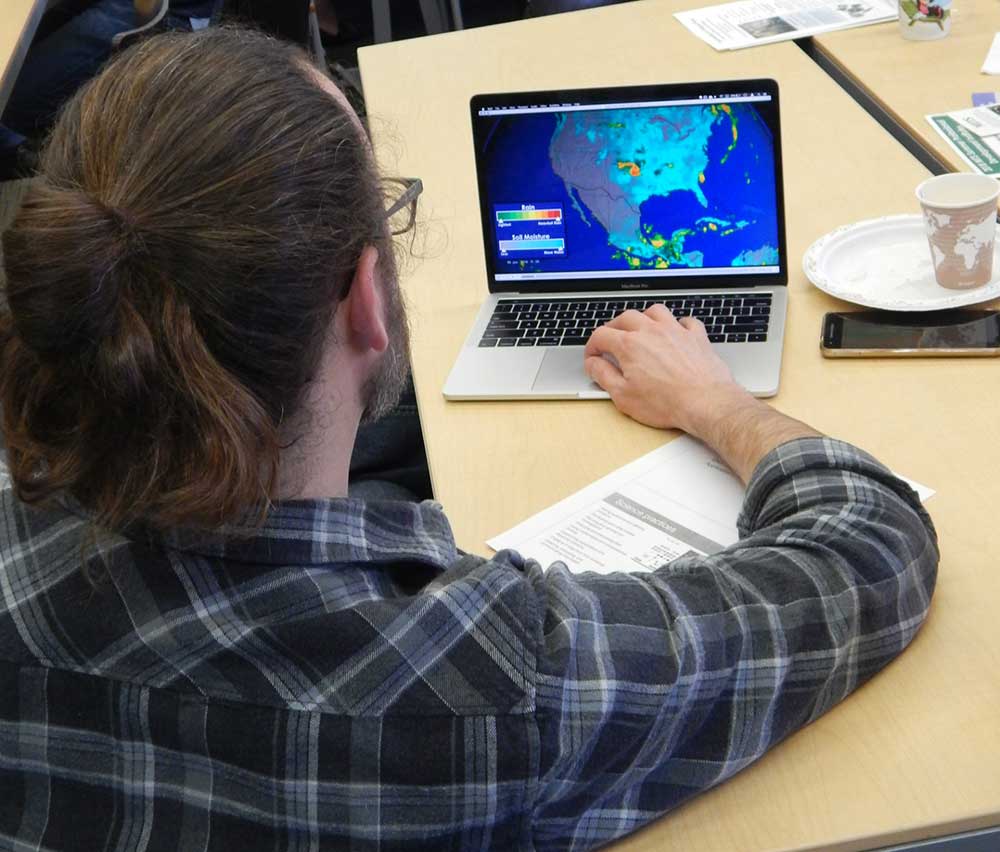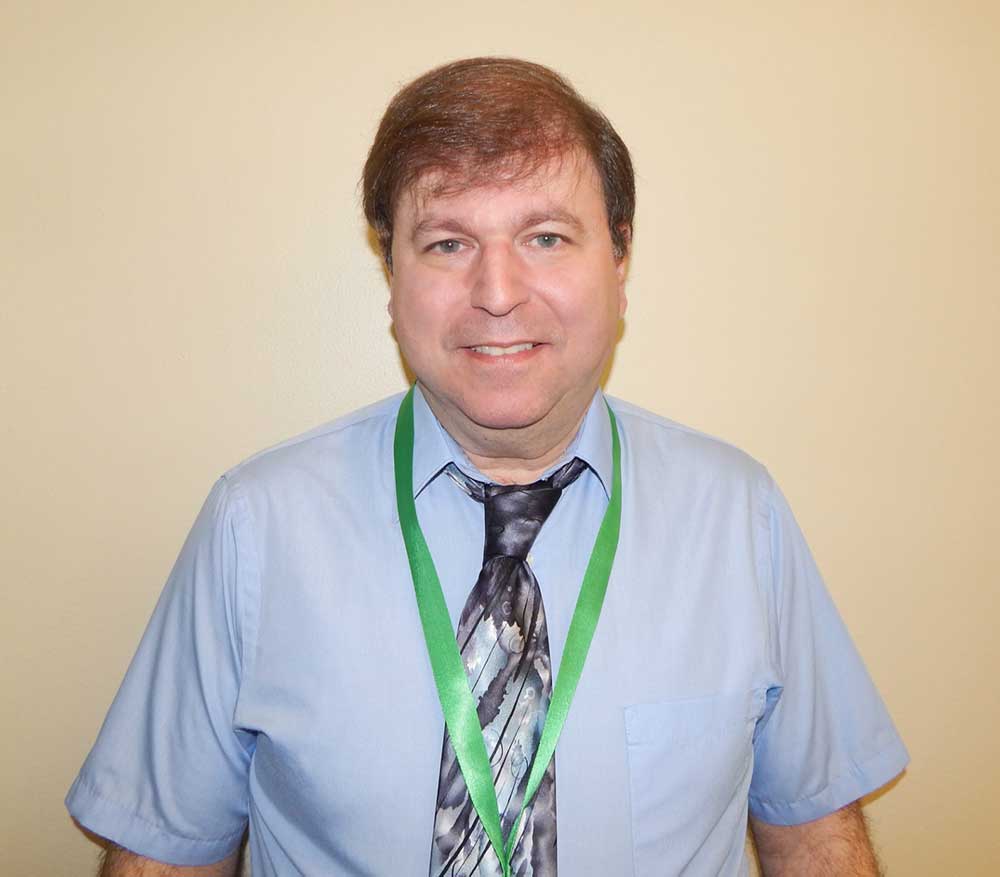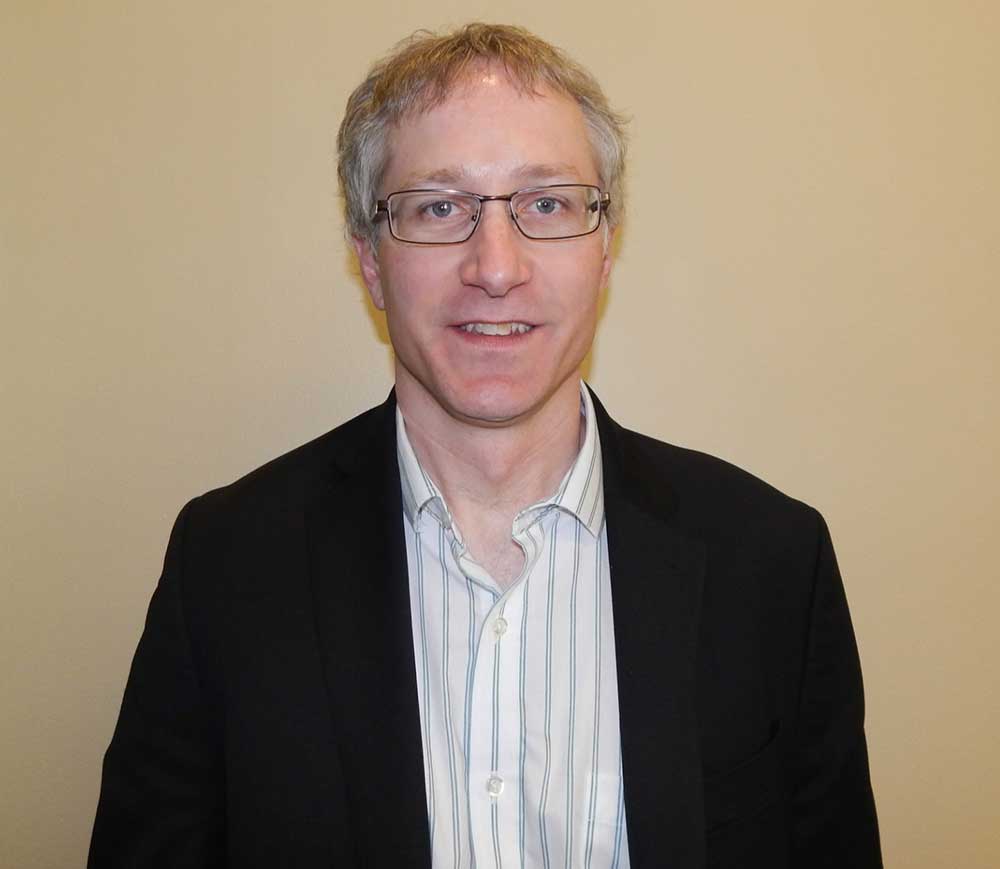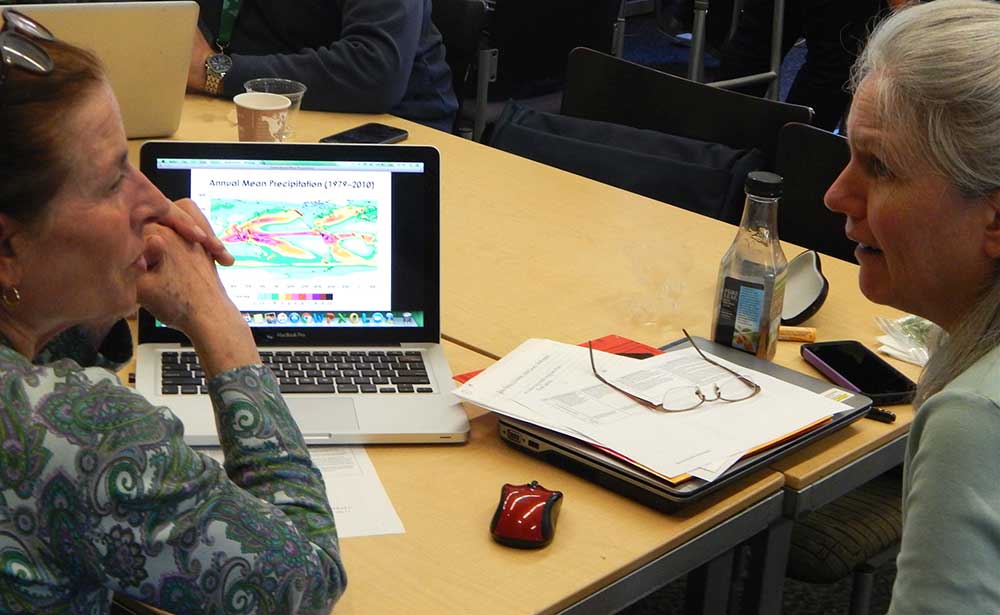Tuesday, May 15, 2018
For Immediate Release
Educators Use Models to Investigate Weather
During MITS Professional Development Seminar
Worcester, MA – Over 30 educators explored ways to engage students with weather data through forecasting techniques and media sources at the Museum Institute for Teaching Science (MITS) Professional Development Seminar on April 24, 2018. With presenters from NOAA/NWF Boston and WGBH, educators reviewed the history of local weather forecasting as well as new modeling systems that students can use to learn more about these topics.
Glenn Field explained weather forecasting techniques and the partnerships involved in public warning systems.
In the morning, Glenn Field, Warning Coordination Meteorologist at National Oceanic and Atmospheric Administration (NOAA) / US National Weather Service, Boston, covered the history of extreme weather events in New England and described the complicated warning system used to inform the public of upcoming major weather events. Educators learned more about forecasting technologies, like biodegradable weather balloons and automated sensors, as well as the severity of weather that leads to local warnings. After hearing about the “StormReady” program that helps towns to be better prepared for storm side effects like flooding, participants considered time constraints of implementing public weather warnings and impacts of storms or other extreme events on communities.
Jake Foster presented learning modules that help students engage in the Science and Engineering Practices.
In the afternoon, educators investigated PBS LearningMedia resources with Jake Foster, Director of Curriculum and Instruction at WGBH. Searching by grade level and topic, participants interacted with various media and gained ideas about how they might integrate modules into their current curriculum. Teachers said they envisioned using modules to prompt students to think about global weather systems, or to ask students to use argumentation to advocate where they might want to live based on weather data. One educator suggested that students could investigate amounts of rainfall in deserts by pairing the NASA earth views of weather patterns with topographical maps. Throughout the presentation, educators commented that the modules will tap students’ natural curiosity and draw them in to science topics like weather and climate.
By attending this MITS Professional Development Seminar, educators took an active role in their own learning and enhanced their repertoire of instructional tools. Educators were engaged by the stories of weather changes over time periods, represented through media models, and excited to bring these inquiry-based resources back to their organizations. How will these educators implement the Science and Engineering Practices in their programs? Whether they use forecasting data from NOAA/NWS or utilize a grade-specific learning module from PBS LearningMedia, these educators are now prepared to implement more weather and climate activities in their programs.
More information about MITS Professional Development Seminar Series can be found at //wadeinstitute.wpengine.com/professional-development-seminar-series/.
###
The Museum Institute for Teaching Science specializes in providing hands-on, minds-on, inquiry-based STEM professional development for formal and informal educators. For more information, visit www.mits.org or call 617-328-1515.




